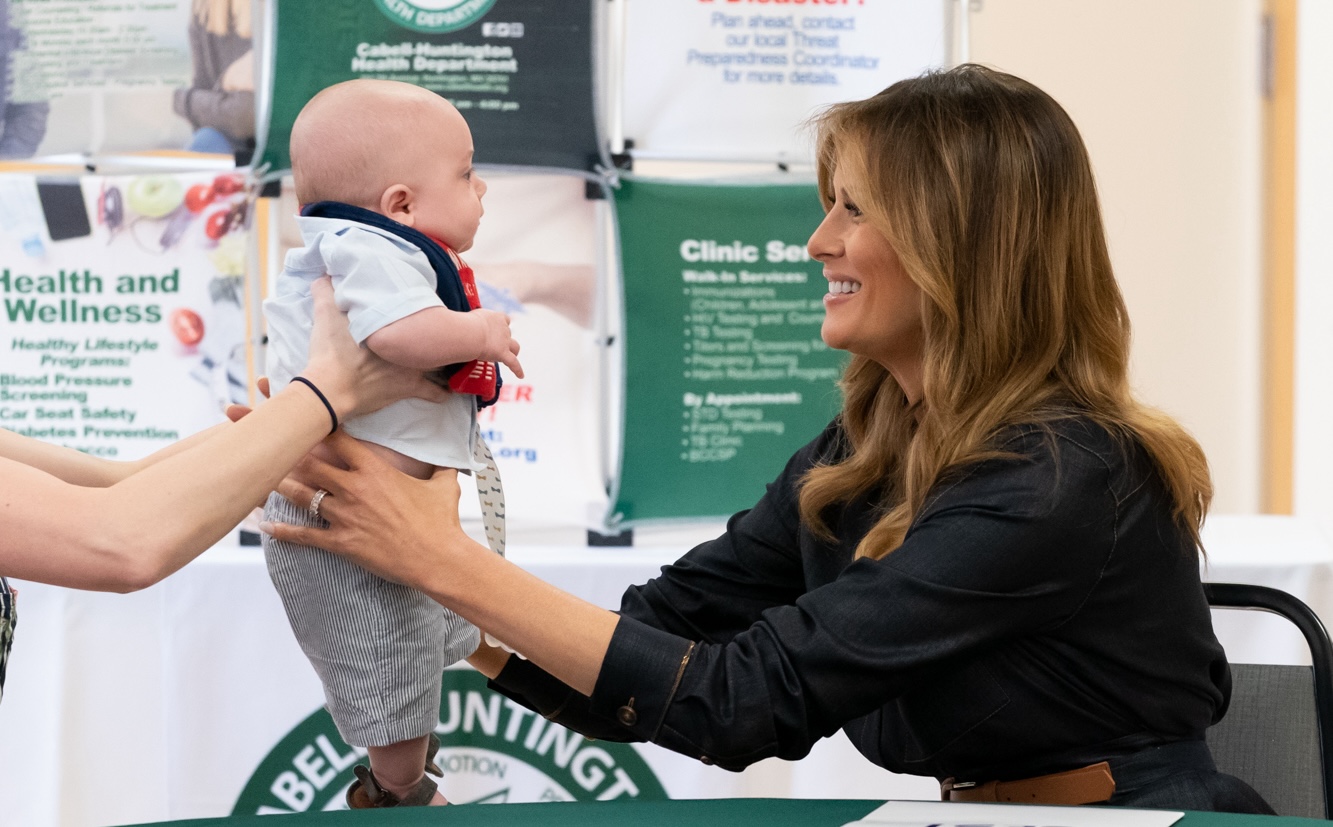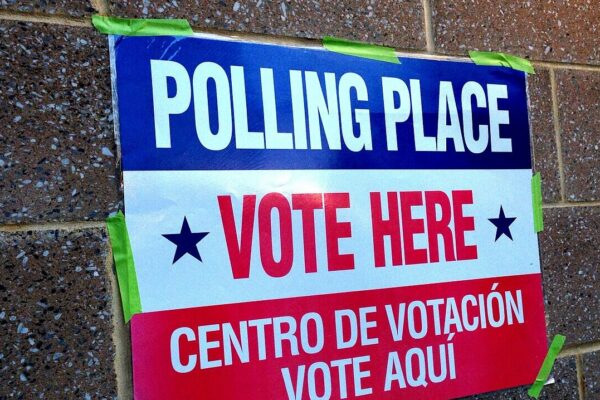Melania’s Abortion Support Further Discourages Pro-Life Votes For Trump

It shouldn’t have been a surprise. Melania Trump had a successful career as a model. She’s married to one of the most prominent businessmen and politicians in the world. She fits the feminist demographic. Of course she supports abortion.
But for pro-lifers who’ve been arguing that Donald Trump is the pro-life option since 2016, it still hurts a little.
Melania’s book, titled Melania, isn’t set to be released until Oct. 8, but it’s already making headlines. The book reportedly reveals that the former and perhaps future first lady is an advocate of a supposed “right” to abortion, and in one promotional video for the book, Melania speaks explicitly about a woman’s right to what she calls “individual freedom.”
“Individual freedom is a fundamental principle that I safeguard. Without a doubt, there is no room for compromise when it comes to this essential right that all women possess from birth: individual freedom. What does ‘my body, my choice’ really mean?”
Evidently, she’s answered that question in the same way the left has: A woman’s imagined right to “individual freedom” in the form of abortion supersedes her unborn child’s right to life.
“Why should anyone other than the woman herself have the power to determine what she does with her own body?” she reportedly wrote in her book. “A woman’s fundamental right of individual liberty, to her own life, grants her the authority to terminate her pregnancy if she wishes.”
“Restricting a woman’s right to choose whether to terminate an unwanted pregnancy is the same as denying her control over her own body,” she continued, co-opting Democrats’ euphemistic language to describe the taking of innocent human life.
That is a radical statement. Melania, it seems, would oppose any restriction on abortion. She’s not even making the argument that many pro-abortion advocates make that abortions should at least be granted in cases of incest, rape, or when the life of the mother is threatened. Any restriction, at all, Melania has decided, violates a woman’s so-called right to choose. Never mind an unborn child’s right to life.
In a thread on X, Susan B. Anthony Pro-Life America pointed out that not only are most women pressured to commit abortions, but about 96 percent of abortions are happening for elective or unspecified reasons regardless of whether they are late-term or within the first few weeks of pregnancy. In the face of these facts, it’s hard to argue that denying a woman a “right” to abortion would prevent her from exercising “control over her own body.”
Of course, if Donald Trump wins in November, Melania won’t be the one making the final call on whether to veto a national abortion ban, and she won’t be the one to decide whether to release presidential statements urging states to ban the killing of unborn children in their mothers’ wombs. But she likely has her husband’s ear should he be in a position to make those decisions.
The timing of the book release is intentional, of course. It provides shock value (the wife of the man who claims he was responsible for overturning Roe v. Wade is pro-abortion) at what strategists no doubt consider to be the right time. While it’s not exactly an “October surprise,” it might win a couple of votes from those stubborn suburban single women who tend to lean Democrat. At the very least, it might get Donald Trump and the Republican Party’s shifting position on abortion onto television screens.
For those who haven’t been paying attention, that shift has become increasingly apparent in recent weeks. On Tuesday, Donald Trump promised to veto a federal abortion ban on X in a post that was bolded and in all caps: “EVERYONE KNOWS I WOULD NOT SUPPORT A FEDERAL ABORTION BAN, UNDER ANY CIRCUMSTANCES, AND WOULD, IN FACT, VETO IT, BECAUSE IT IS UP TO THE STATES TO DECIDE BASED ON THE WILL OF THEIR VOTERS.”
As Carmel Richardson writes at First Things, that promise snuffed out the “glimmer of hope” pro-life Americans had held onto even as the former president expressed his support for sponsoring IVF treatments, either federally or through insurance, despite the high number of embryonic lives discarded during a single round of IVF. It’s easy to conclude that those IVF treatments were the “fertility treatments” J.D. Vance referred to Tuesday night when he said:
I think that’s one of the things that Donald Trump and I are endeavoring to do. I want us, as a Republican Party, to be pro-family in the fullest sense of the word. I want us to support fertility treatments. I want us to make it easier for moms to afford to have babies. I want it to make it easier for young families to afford a home so they can afford a place to raise that family.
In the past, Vance has said he supports access to the abortion pill, mifepristone — a statement he hasn’t denied (although, one could argue he was flustered during the interview he gave on the topic). Donald Trump’s statements on the topic are slightly less muddled. During the first presidential debate against Joe Biden back in June, he said he wouldn’t block access to the pill after confusing the conclusion of the U.S. Supreme Court.
It’s obvious, at this point, that the Republican Party and the Trump-Vance ticket have drifted leftward on abortion. The question pro-life voters are left trying to answer is whether this is an election strategy or a permanent and unfortunate change in position — while the former is disconcerting, the latter would be devastating. Even so, as Nora Kenney and Samuel Wigutow argued in these pages, voting for Trump on Nov. 5 instead of rabidly pro-abortion candidate Kamala Harris is still “the clear moral choice for pro-lifers.”
Regardless, Melania Trump’s unequivocal support for abortion puts pro-life advocates, the Republican Party, and her husband in a rather difficult position. At the very least, it places her at odds with her husband’s conservative base. At most, should Donald Trump prove to be as pro-life during his second term as he was during his first, it will put her at odds with him as well.
Aubrey Gulick is a former Intercollegiate Studies Institute fellow and a regular contributor at The American Spectator. A Hillsdale grad, she enjoys writing about history, music, and the intersection of technology and ethics. You can follow her on X @AubGulick.




